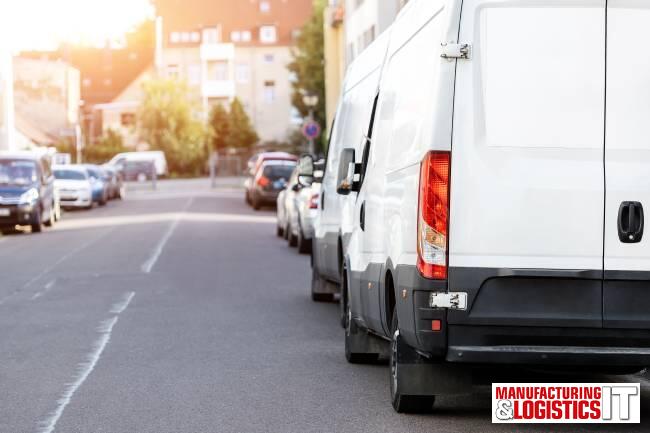Examining the Impact of Customer Preferences on Fleet Sustainability
In a world where sustainability is increasingly becoming the buzzword, recent insights reveal customer demand as a primary motivator driving fleets towards decarbonisation. The Mobilising the Future of Fleets Report: 2025 Energy Edition, released by Teletrac Navman, shows that a significant portion of fleets recognize the pressing need to pivot towards alternative energies. With 63% of fleet operators reporting that customer expectations are influencing their choices, it’s clear that the wheel of change is turning quickly.
Brand Reputation and Sustainability Goals at the Forefront
Interestingly, over half (58%) of the businesses surveyed cited their brand reputation and internal sustainability goals as key drivers for their transition to greener energies. This shift reveals that the journey towards Net Zero is less about ticking compliance boxes and more about responding to customer expectations and market demand. Only 29% of respondents indicated that regulatory pressure was a significant factor in their decisions, suggesting a move toward a more proactive and brand-focused approach.
Quotes from Industry Leaders
Alain Samaha, CEO of Teletrac Navman, emphasized this emerging trend, stating, “Fleets are focusing on their own net-zero goals as a part of their corporate reputation and long-term commercial strategies, rather than just seeing it as a compliance checkbox. Customers recognize the importance of sustainable operations, and according to our research, are making active decisions around the businesses they support based on their sustainability credentials.”
Operational Efficiency: A Key Focus for Fleets
As the cost of fuel continues to fluctuate, fleet operators are more inclined to utilize their existing assets efficiently rather than jump into costly new investments. A notable 84% of fleets are concentrating on operational enhancements. Key areas of investment include:
- Regular vehicle maintenance: 49%
- Optimising vehicle utilisation: 36%
- Driver training initiatives: 28%
These strategies highlight a resourceful approach to managing existing fleets, ensuring that operators can maximize performance on the road.
Investments in New Technology
On the flip side, 61% of fleets are indeed putting capital behind upgrading to more fuel-efficient vehicles (48%) or transitioning to alternative fuels (31%). This investment indicates a thoughtful approach to vehicle selection and a commitment to long-term carbon impact considerations. The larger the fleet, the more robust these transitions tend to be. For fleets with 50 or more vehicles, 62% reported having an active strategy for enhancing their sustainability performance.
Different Strategies for Fleet Transition
Despite the enthusiasm for greener operations, fleet operators appear divided in their methodologies for transition. A survey showed that:
- 46% perform vehicle suitability assessments, often with external consultancy support.
- 42% prefer handling vehicle replacements at the end of their lifecycle.
- 30% have undertaken a Total Cost of Ownership (TCO) analysis to steer clear of costly mistakes.
This diversity in strategies illustrates that there isn’t a one-size-fits-all approach towards fleet de-carbonisation. In fact, understanding the total cost of ownership is crucial for making informed and economically feasible decisions, as highlighted by Samaha.
The Rise of Mixed-Energy Fleets
With sustainability goals on everyone’s lips, there’s a clear trend towards mixed-energy fleets. A substantial 61% of operators report using multiple energy types, with hopes of diversifying further. Many of these operators have already leapt into using multiple energy sources, including Plug-in Hybrid Electric Vehicles (PHEVs), Battery Electric Vehicles (BEVs), and natural gas options – all noteworthy players in the transition towards greener logistics.
Furthermore, a promising 8% of fleets have transitioned at least half of their vehicles to greener alternatives, while another 48% foresee reaching this milestone within the next two years. As time rolls on, an ambitious 85% aim to achieve similar proportions within the next five years.
Strategic Advantages of Decarbonisation
Decarbonisation isn’t merely a responsibility; for many in the industry, it is a strategic advantage. Samaha articulates this sentiment, noting, “The push for fleet sustainability is at a pivotal moment. There is no single viewpoint on the best path forward, and while concerns persist, many operators see decarbonisation as a strategic advantage.”
However, with this shift comes challenges. The pace and feasibility of adopting greener technologies remains a topic of debate, but the crux lies in harnessing reliable data and actionable insights that align with both business objectives and sustainability goals.
Conclusion: Navigating the Future of Logistics
The survey, which collected insights from 536 respondents across Australia, New Zealand, Mexico, the UK, and the US in November 2024, paints a clear picture of the staggering shift towards sustainable operations in logistics. Customer demand, brand reputation, and operational efficiency are all interwoven in the fabric of fleet management today.
While insightful reports provide valuable knowledge, there’s nothing quite like first-hand experience. At GetTransport.com, ordering cargo transportation that aligns with sustainability values is easy and affordable. Offering a variety of solutions—ranging from office relocations to luxury goods transport—GetTransport.com ensures that logistics remain simple, effective, and tailored to diverse needs. Think of GetTransport.com as your go-to platform when planning your transport and logistics efforts. By prioritizing reliability and cost-effectiveness, you can easily navigate your shipping and distribution challenges.
The rapid evolution within fleet operations and sustainable logistics calls for adaptability and forward-thinking strategies. As customer demand pushes for greener solutions, platforms like GetTransport.com stand ready to meet these rising expectations while maintaining efficiency and cost-effectiveness. Book your next cargo transportation with GetTransport.com today!

